




| Fox Moth (Macrothylacia rubi (Linnaeus, 1758)) |





|
|
Scientific name: Macrothylacia rubi (Linnaeus, 1758) Common name: Fox Moth French name: Bombyx de la ronce Order: Lepidoptera Suborder: Heterocera Family: Lasiocampidae Subfamily: Lasiocampinae Wingspan: 60 to 65 mm for females, 45 to 50 mm for males. Biotope: Grassy meadows, open forests, wastelands and other open environments. Geographic area: From Western Europe to Central Asia. Flight time: May to July. Number of generations : 1 Caterpillar: The caterpillars, initially black with bright yellow or orange rings at the joints of the segments, become darker, always covered with blackish and tawny hairs and light grey hairs on the sides. When they feel threatened they roll up on themselves. They are not stinging. Host plant: Many low growing plants. |
The Fox Moth has yellowish-brown forewings on males and greyish-brown on females. They are crossed by two thin, almost straight pale yellowish lines. The hindwings are plain reddish-brown. The abdomen is voluminous. Males have pectinate antennae, females have filiform antennae. Females fly at night while males fly during the day and at dusk. The Fox Moth overwinters as a caterpillar in its final development stage. Pupation occurs the following spring. |
| [To know more about the Fox Moth] [Next picture] [Top] |
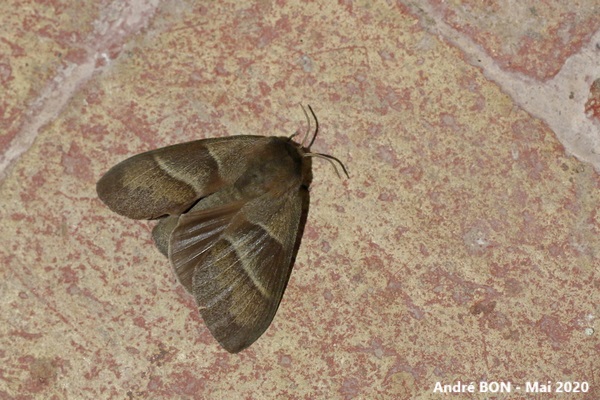
|
This female entered the house, certainly attracted to light. |
| [To know more about the Fox Moth] [Next picture] [Previous picture] [Top] |
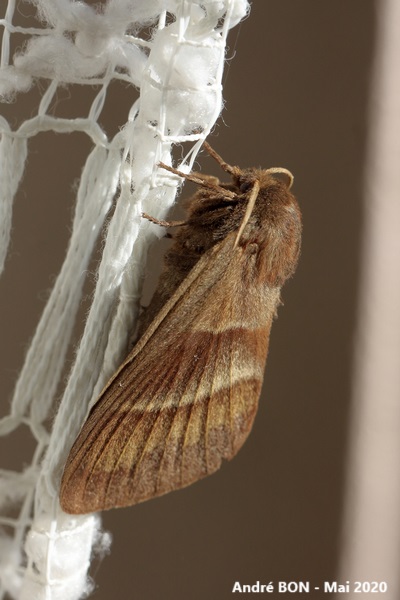
|
Side view, hanging on the small curtain of the front door. |
| [To know more about the Fox Moth] [Next picture] [Previous picture] [Top] |
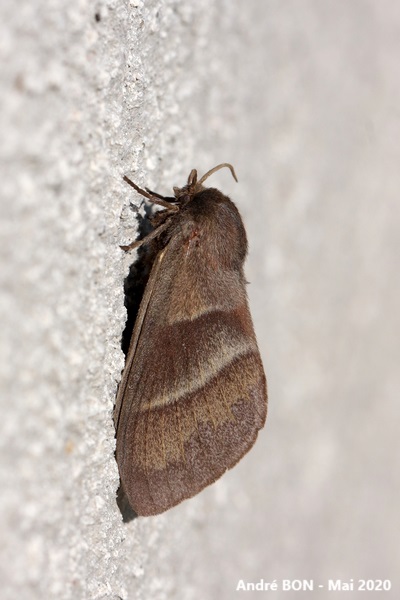
|
The next morning I carefully carried this Fox Moth outside the house and took the opportunity to shoot some photos in natural light. |
| [To know more about the Fox Moth] [Next picture] [Previous picture] [Top] |
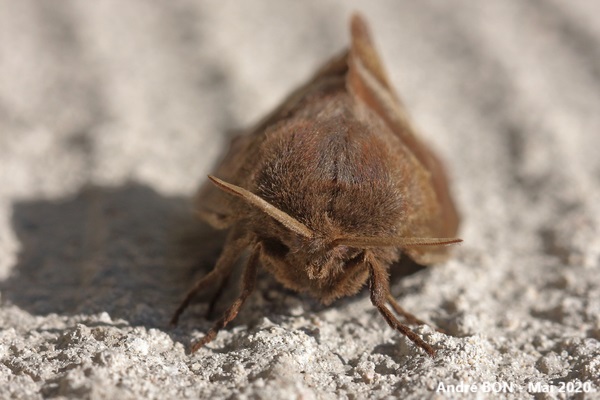
|
Front view. I hope, one day, to be able to observe a male and its beautiful pectinate antennae. |
| [To know more about the Fox Moth] [Previous picture] [Top] |
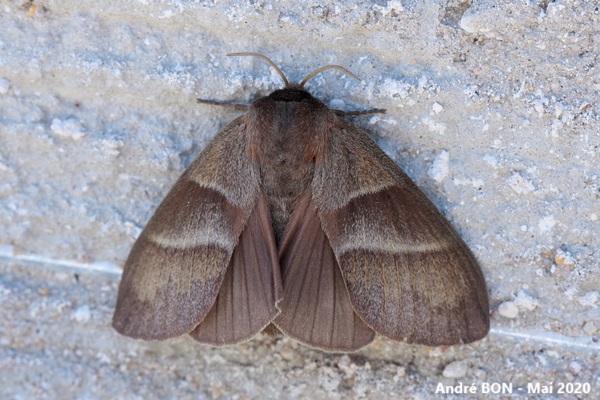
|
I allowed myself to tease this female a little and it was kind enough to show me part of its hind wings. |